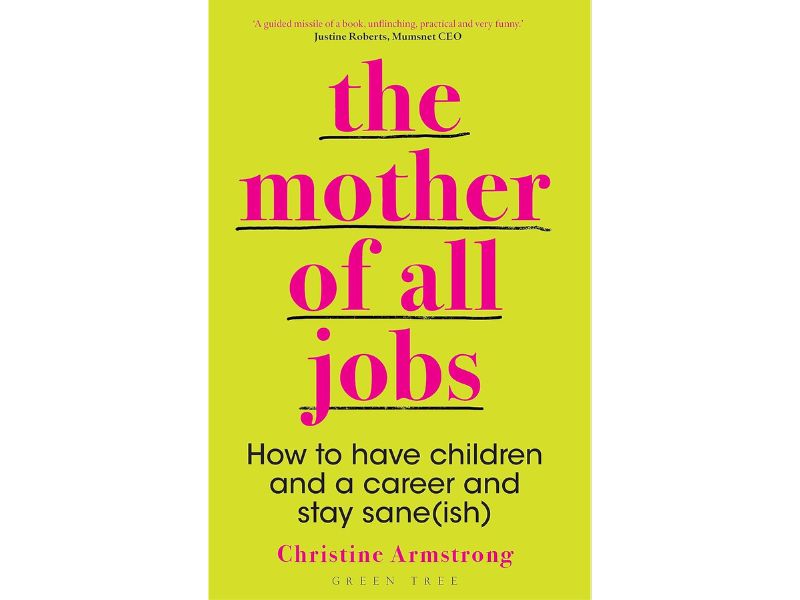
By Han Son Lee, Founder of parenting platform for dads, Daddilife
A short while ago I took my dog for a walk, with my baby daughter – who was about two months old at the time – in the carrier.
A middle-aged woman stopped me to give the dog some fuss and noticed I had the baby strapped to my chest.
“Oh I love seeing fathers carrying their babies!” she said, “I think it’s just wonderful.”
I was perplexed. It was normal for me. I did the same with my son three years earlier. I wouldn’t go as far as to say I was offended, but I certainly didn’t walk away giving myself a high five and think ‘Go me!’.
It’s now normal for a dad to change nappies, wake up to do bottle feeds, burp their babies and cook meals for them, bath them, look forward to coming home to spend time with them, and my personal favourite – getting lost in our own little great teepee worlds.
It’s not something that needs to be celebrated anymore. I consider myself to be a very hands-on dad, but that doesn’t make me an amazing dad. That’s just what a dad should be.
And while dads are more active parents and doing more around the house than ever before – many will boast about doing half the chores around the house – it’s no longer enough to just be a hands-on dad.
I think we need to be more honest about this – our wives and partners are still taking on a lot more of the mental load.
What is the mental load?
Even if you’ve never heard the term before, if you’re a woman with a partner and a house, you almost certainly feel it every single day. All the invisible work you do for your family and around the house, the ‘always on’ mental workload of “anticipating needs, identifying options for filling them, making decisions, and monitoring progress,” as one study describes it. That same study suggests that this responsibility almost always falls on the shoulders of the woman of the house.
Few men even realise it exists, let alone consider what their partners are going through.
Striving to be better
Dads are more hands-on than ever before; we’ve established that. But that is no reason to put our feet up, crack open a beer and raise a toast to how great we are.
Dad needs to continue striving to be better. I, myself, need to strive to be better. We need to challenge ourselves to go beyond the physical load of ‘doing half the chores’ and take on our share of the mental load, too.
How to share the mental load
1 – Talk
An open and honest conversation is the only way you are going to make real progress. Remember, the chances are that your partner doesn’t even know this problem exists, so a passing comment or heated response during an argument isn’t going to make him understand.
Your partner needs to understand what you want to change and why, to understand how it is affecting you. He will only be committed to change if he truly understands the mental load and its impact on you.
2 – Share the management
You’ve divided the doing of the chores, now it’s time to divide the thinking of those chores – the planning, the remembering, the prioritising, the delegating, the checking.
If dad is taking on the responsibility of cooking for the family, he should be planning the meals, making the shopping lists and remembering to get that one specific ingredient they didn’t have at the supermarket last time. If he’s taking responsibility for laundry, he’s the one that needs to plan which loads need to go on when, remembering to buy more detergent because he’s going to run out if he doesn’t and so on.
3 – Trust
Addressing the balance of the mental load isn’t just about the man changing his ways. It requires the woman to trust her partner to carry out his responsibilities. If you’ve been carrying the mental load for a long time, it’s understandable to feel the need to monitor, criticise and correct how your partner is managing his chores. But that might deter your partner from fully committing to change.
If you can’t trust your partner, you’re still carrying the mental load of that chore. That’s not to say you’re not allowed to care about how something is done. Explaining why something is important to you will help everyone.
4 – Assess and develop
It’s obvious that one conversation is not going to result in the perfect balance.
It’s going to take time, and the only way to get it right in the long run is to keep checking in and make small adjustments. Make sure to address what is working well, what isn’t and how you’re both feeling. You may struggle to relinquish control of a certain chore – it might even be worth switching responsibilities to see what works best and suits everyone.
In the near future, dads will be celebrated for taking on their share of the mental load. And in time, like being a hands-on dad, we’ll reach a point where it no longer needs to be celebrated. Sharing the mental load will be the norm.
 About the author
About the author
Han Son Lee is the founder of Daddilife (www.daddilife.com), the UK’s largest parenting and lifestyle platform for dads.
Han Son also campaigns on behalf of fathers for better work/life balance from an employment perspective and also on issues around Shared Parental Leave.
He regularly speaks at flexible working events, like the recent Flexpo conference.








